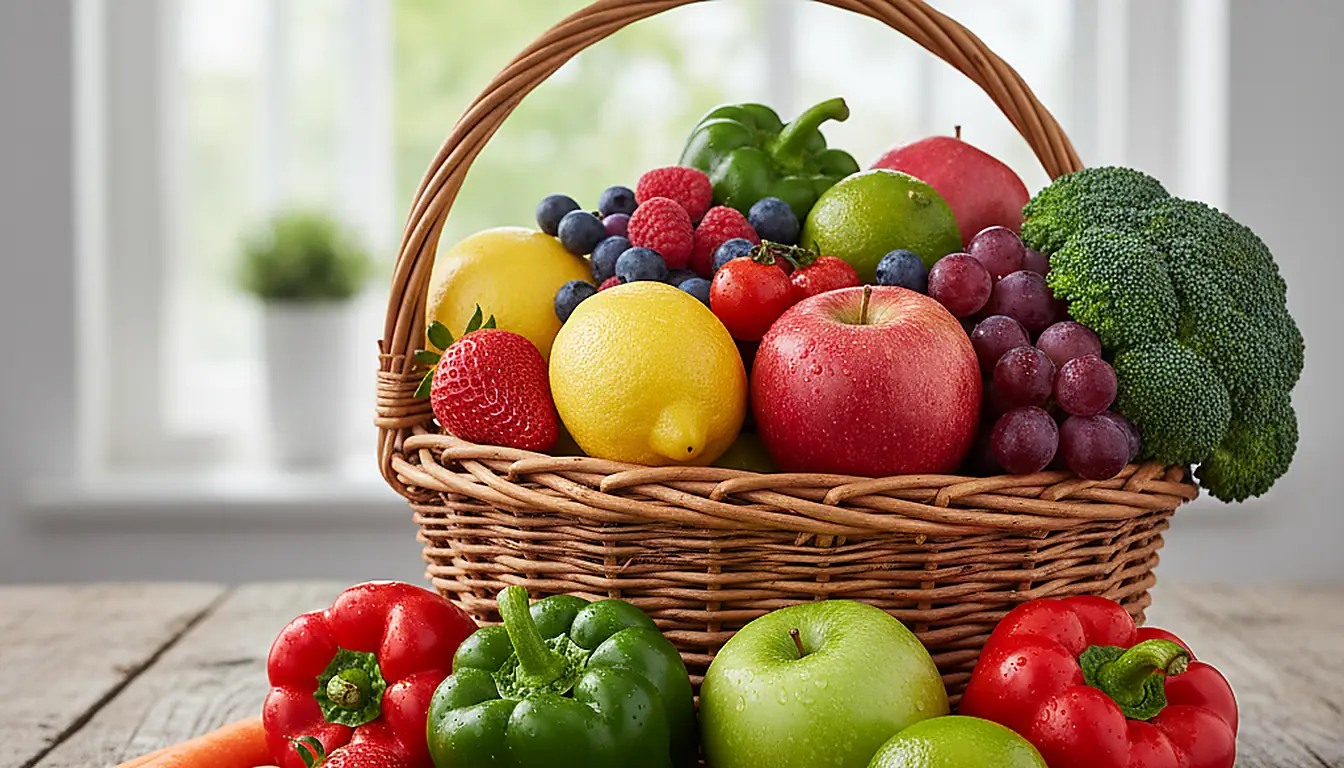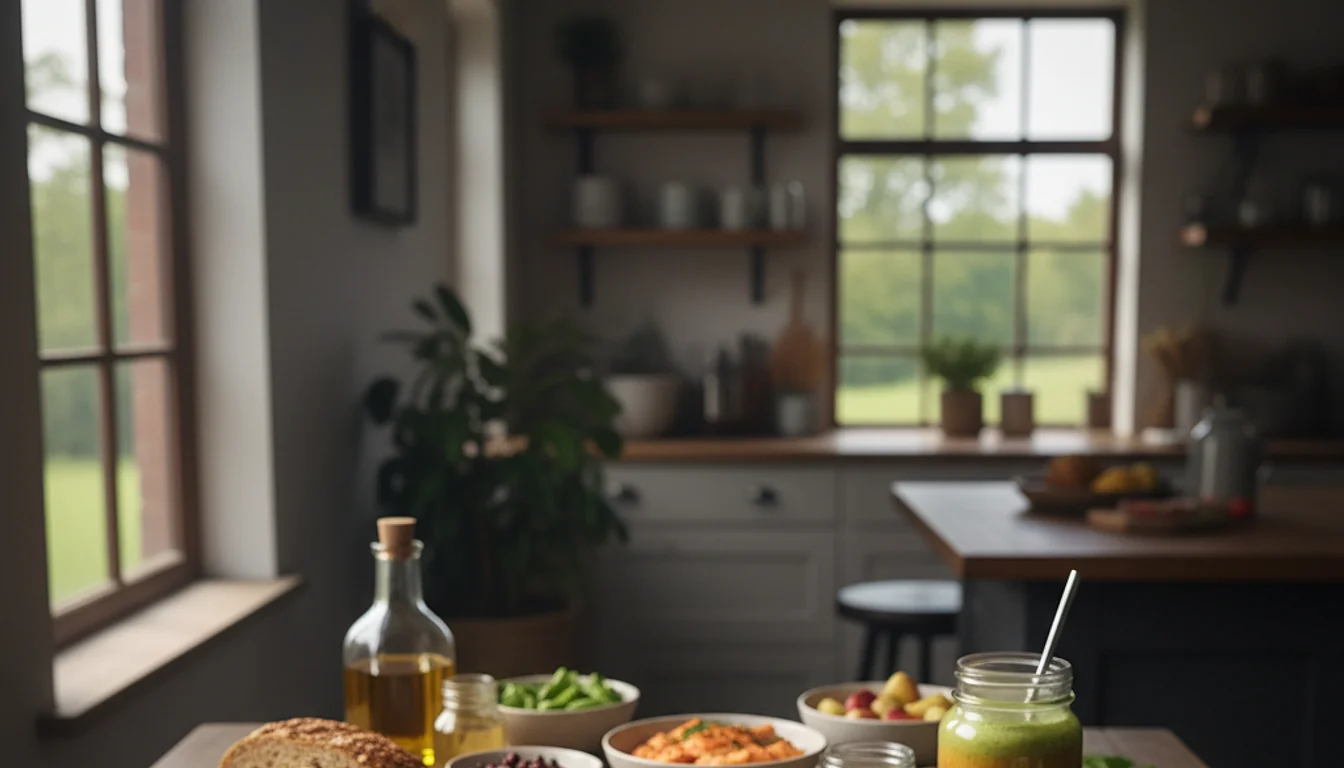Estimated Reading Time: 7 minutes
EEer felt like your body is a finely tuned instrument, and your diet is the sheet music? But what happens when that instrument is a little…off-key? That’s how I felt for years – sluggish, stressed, and just generally not myself.
I tried everything: kale smoothies that tasted like swamp water, extreme workout routines that left me hobbling for days, and enough herbal tea to float a small boat. Nothing really clicked. Then, a friend suggested I look into incorporating CBD into my lifestyle, alongside focusing on a balanced diet with CBD.
Honestly, I was skeptical. But desperate times call for desperate measures, right?
My Journey to a Balanced Diet with CBD
Table of Contents
- My Journey to a Balanced Diet with CBD
- Understanding the Basics: What is CBD, Anyway?
- The Food Connection: How Diet Impacts CBD Effects
- My Personal CBD & Diet Experiment
- Real Talk: The Challenges I Faced
- User Story: Sarah’s Experience
- The Science Behind It: How CBD Interacts with Your Body
- Is it Right for You? Things to Consider
- Looking Ahead: CBD and Nutrition in 2025
- My Final Thoughts
- Ethical Considerations and Social Impact
- User Story: Mark’s Recovery
- The Potential Downsides
Let’s be clear: I’m no doctor. And I’m definitely not one of those super-disciplined health gurus who Instagrams perfect avocado toast every morning. I’m just a regular person trying to feel better. My exploration into a balanced diet with CBD was all about finding a sustainable, realistic approach.
It wasn’t about overnight miracles; it was about creating a long-term strategy for well-being. And, honestly, I think I’m finally getting there.
Let me put it this way.
Understanding the Basics: What is CBD, Anyway?
First things first: CBD, or cannabidiol, is a compound found in the cannabis plant. It’s different from THC, the stuff that gets you high. CBD is all about potential wellness benefits. I did a lot of research (thank you, Google Scholar!) and talked to my doctor before even considering it.
There are a ton of myths and misinformation out there, so do your homework!
The Food Connection: How Diet Impacts CBD Effects
This is where things get interesting. I quickly learned that CBD doesn’t exist in a vacuum. What you eat can significantly impact how your body absorbs and utilizes it. A fatty meal, for example, can increase CBD absorption, but is that really the goal if your diet is otherwise poor?
Small change, big shift—at least for me.
That’s where focusing on a balanced diet with CBD really mattered. It’s not just about taking CBD; it’s about nourishing your body so it can work optimally with it.
Think of it like this: if you’re trying to build a house (your health), CBD is like a really good power tool. But if your foundation (your diet) is crumbling, that power tool isn’t going to do much good. You need both a solid foundation *and* the right tools to get the job done.
My Personal CBD & Diet Experiment
So, what did my journey look like? It wasn’t always pretty. There were weeks where I ate way too much pizza and then tried to compensate with a double dose of CBD (spoiler alert: didn’t work). But, over time, I started making small, sustainable changes. Here’s what worked for me:
- More Whole Foods: I focused on incorporating more fruits, vegetables, and lean protein into my meals. I started meal prepping on Sundays, which helped immensely.
- Healthy Fats: I added sources of healthy fats, like avocados, nuts, and olive oil. I found that this seemed to help my body absorb the CBD more effectively.
- Limiting Processed Foods: This was a tough one, but I gradually reduced my intake of processed foods, sugary drinks, and excessive amounts of caffeine.
- Consistent CBD Dosage: I worked with my doctor to find the right CBD dosage for me. Consistency is key!
Real Talk: The Challenges I Faced
It wasn’t all sunshine and rainbows. One of the biggest challenges was navigating the overwhelming amount of CBD products on the market. Finding reputable brands with transparent testing was crucial. I also struggled with the taste of some CBD oils – some of them are downright awful!
I found that adding the oil to my smoothies or mixing it with a little bit of honey helped make it more palatable.
Another challenge was staying consistent. Life happens! There were days when I just didn’t have time to meal prep or felt too stressed to make healthy choices. The key was to not beat myself up about it and to get back on track as soon as possible.
User Story: Sarah’s Experience

Honestly, it’s a tiny tweak—with a steady payoff.
My friend Sarah had struggled with chronic inflammation for years. She was initially hesitant about CBD, but after learning about its potential anti-inflammatory properties, she decided to give it a shot alongside a balanced diet.
Sarah found that incorporating CBD oil into her daily routine, along with eating more anti-inflammatory foods like berries, leafy greens, and fatty fish, significantly reduced her pain levels and improved her overall quality of life.
She emphasized the importance of finding a high-quality CBD product and consulting with her doctor before starting. Sarah now feels more energetic and empowered to manage her inflammation effectively.
The Science Behind It: How CBD Interacts with Your Body
Okay, let’s get a little bit nerdy for a second. CBD interacts with your body’s endocannabinoid system (ECS), which plays a crucial role in regulating various functions, including mood, sleep, appetite, and pain perception.
A balanced diet with CBD ensures your body has the nutrients it needs to support these functions, potentially enhancing the effects of CBD. Think of your diet as providing the raw materials for your ECS to function properly.
Is it Right for You? Things to Consider
Everyone is different, and what works for me might not work for you. It’s crucial to talk to your doctor before starting any new supplement, including CBD. They can help you determine if it’s safe for you, especially if you’re taking other medications. Also, remember that CBD is not a magic bullet.
It’s most effective when combined with a healthy lifestyle, including a balanced diet with CBD, regular exercise, and stress management techniques.
Looking Ahead: CBD and Nutrition in 2025
It’s 2025, and the world of CBD and nutrition is constantly evolving. We’re seeing more research on the potential benefits of CBD for various health conditions, and more innovative products are hitting the market. But, it’s essential to stay informed and to be wary of exaggerated claims.
The key to success with CBD is to approach it with realistic expectations and to prioritize a holistic approach to health and wellness.
My Final Thoughts
My journey towards a balanced diet with CBD has been a learning process, and I’m still learning! I can honestly say that it has made a positive impact on my overall well-being. I feel less stressed, more energetic, and more focused.
But, I’m also mindful of the potential downsides and the need for more research. I encourage you to do your own research, talk to your doctor, and listen to your body. Remember, health is a journey, not a destination. And sometimes, a little bit of CBD and a whole lot of healthy food can make all the difference.
I hope this helped! Remember also to pair it with regular exercise and mindful meditation for total wellbeing! If you are looking to improve your sleep quality, it may also benefit you to improve your sleep hygiene.
Ethical Considerations and Social Impact
The rise in popularity of CBD also brings about some ethical considerations. It’s important to support companies that prioritize sustainable and ethical sourcing practices. Look for brands that are transparent about their manufacturing processes and that give back to the communities where they operate.
Consider the environmental impact of CBD production and choose products that are produced in an eco-friendly manner. Supporting ethical brands not only benefits your health but also contributes to a more responsible and sustainable industry.
User Story: Mark’s Recovery
Mark, a former athlete, suffered a severe knee injury that required multiple surgeries. His recovery was slow and painful, and he became reliant on prescription painkillers.
After researching alternative pain management options, Mark decided to incorporate CBD oil into his treatment plan, alongside a diet rich in anti-inflammatory foods. Within a few weeks, Mark noticed a significant reduction in his pain levels, allowing him to decrease his reliance on painkillers.
He also found that CBD helped improve his sleep quality and reduce his anxiety. Mark credits the combination of CBD and a balanced diet for helping him regain his active lifestyle and manage his pain effectively.
The Potential Downsides
Let’s be honest, no solution is perfect, and CBD has its potential drawbacks. Some people may experience mild side effects, such as drowsiness or dry mouth. It’s essential to start with a low dose and gradually increase it to see how your body reacts.
Additionally, CBD can interact with certain medications, so it’s crucial to consult with your doctor before starting it. It’s also an unregulated market, so you have to be extra careful about the quality and source. Finally, CBD’s effects can vary from person to person, and it may not be effective for everyone.
It’s important to have realistic expectations and to view CBD as one part of a comprehensive health and wellness plan. The key is the balanced diet with CBD.










